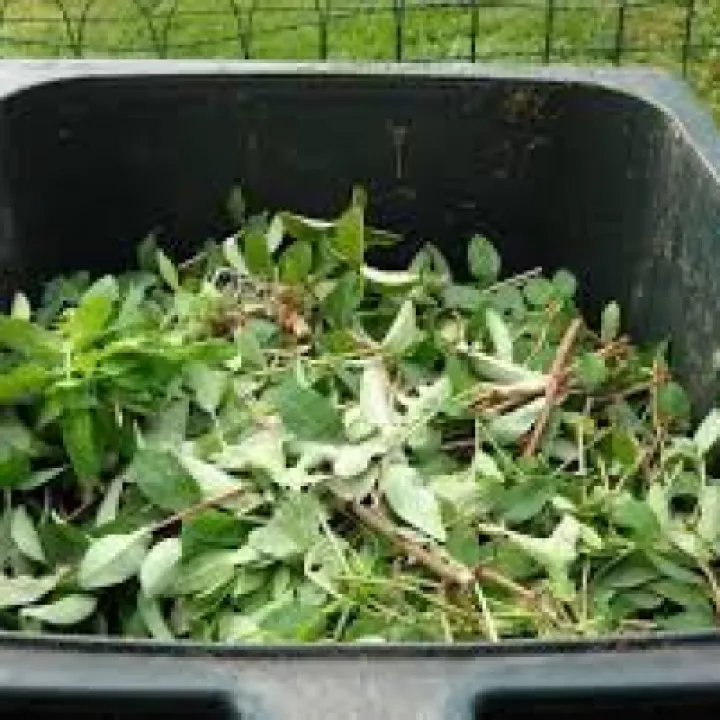Six questions to ask your kids in lockdown
Being a parent or guardian in lockdown isn't easy.
Young people will all be reacting to the situation in their own way, and some may have found it more challenging than others. Their lives have changed a lot in a short time, and they may feel unsafe or anxious about returning to normal as things start to open up again.
Even if they've taken the first few weeks in their stride, perhaps they're starting to show changes in their behaviour as things go on. It can be difficult to judge when to step in, when to leave them be and when a chat and a distraction might be the trick to boost their mood.
Mental health charities Mind and YoungMinds offer these suggestions of questions you can use to start a conversation with your child while in lockdown.
Do you need some time alone?
Even for the people-iest people person, being stuck in the same house with the same people 24/7 can be exhausting. It might be the norm to never see your more introverted child unless they're venturing out for food, but perhaps you've noticed them shying away more than usual. More outgoing kids might find it hard being away from people their age and would rather stay shut up in their room on their phones.
The important thing to be able to spot is when they need to be alone and when they might be withdrawing.
It's really tricky at the moment getting that balance of giving them time alone and encouraging them to come out of their rooms. It's good to understand that young people need their space, but also when they need to be spending that quality time together. That's when a parent can gently open up that conversation channel if they feel like a young person is becoming more withdrawn.
Asking this question directly might encourage them to say why they want to be alone, whether they're feeling overstimulated, blue, frustrated or just fancy reading a book without distractions.
Can you help me out with this?
An excellent way of encouraging your child into an activity or quality time is to give them some responsibility. This could be a big thing, such as looking after a houseplant, being on pet duty or even volunteering to help your community in lockdown.
Everyday tasks can be an opportunity: Include them when talking about looking after older relatives and shopping for essentials – such as what can and can't be bought, and if they can help. If they're good with technology, they could help their family adjust to working and socialising from home.
In encouraging them to look after other people, it might help them to look after themselves as well. Younger children might jump at the chance to be trusted with something to do, and find it rewarding and fun to help someone else.
[How are your mates doing?
]Shifting focus to their friends not only shows that you're taking an interest in their lives, but can also help them navigate their own emotions. Asking them specifically how their friends are coping with quarantine is a good way to get them talking about any emotions and fears that lockdown is causing, and whether they feel isolated from or connected with their friends.
However, it doesn't have to be heavy – asking about their friends' new quarantine hobbies or the ways they're all staying connected is a great way to stay involved with the people they care about. You might even suggest some virtual activities, games, or challenges they can do together if they're struggling to find something to do whilst keeping in touch.
Fancy a jog?
We all know how beneficial exercise is for our physical health, but it's important for our mental health too. Things like sleep, digestion and focus can all be improved by keeping active, and can all have a profound effect on your mental health.
Doing an activity together provides a distraction and might make young people feel less like they're being interrogated in a conversation.Doing your daily walk together is a great way to encourage talking, as it becomes family time (and it's easier to walk and talk than it is to pilates and talk), and going at the same time every day provides some structure.
If your child is already sporty or enjoys being active, you might ask them to show you how to get into exercise, or to help spot you or correct your form. Putting them in the role of teacher is an excellent way to not only get them moving, but open up a chance to chat about something they enjoy and what they've learnt from it.
Or if you wanted to learn something new together, a challenge like Couch to 5K could be a good way to start running. It's much easier to stay motivated if you can cheer each other on.
What was the best/worst bit about your day?
Having your child reflect on their day-to-day behaviour and emotions can help them feel more present, and hopefully less anxious of the future. Finding out the best part of their day will let you know what they enjoy, give them something positive to acknowledge, or just provide a good laugh whilst at the dinner table.
Likewise, talking about their worst bit might help them to process what they've experienced in the day. It can also help you to understand what's getting them down in their new lockdown routine or any fears and stresses they might have about school, their relationships or quarantine itself.
Bringing up talking points over a board game or on your daily walk can be a good start for kids of any age. For more inspiration for family time conversation starters, check out YoungMind's conversation guide https://youngminds.org.uk/starting-a-conversation-with-your-child/starting-the-conversation/ .
What can I do to support you?
This can be a very valuable way to find out what your kids need from you specifically. Older teens might be more articulate in expressing exactly what you can do to help, and younger kids might feel you're giving them permission to ask for something that will cheer them up – even if it's just to spend the day baking.
The key thing is to find things that they enjoy doing, then you can do those things together and that's a nice way to start having those conversations about how they're feeling or if they might be struggling.
It's perfectly normal for them to not seem themselves when navigating an entirely new and stressful situation. But if you're worried it might be something more serious, keep an eye on how long it's going on for – We can all feel worried, down, upset or angry at times and this can be normal. But if these feelings last a long time, it might be a sign that you need more help.
For example, if your child has negative feelings that:
- affect them most days and persist over a period of weeks
- stop them from doing things they enjoy
- make them feel like they can't cope anymore
- it might be time to seek extra support.
You can discuss this with your child, and it's important to consult a GP, as this is the gateway into accessing counselling and other mental health support.
Many practitioners are reporting a drop in engagement with their mental health teams as people don't want to be a bother during quarantine, or don't know where to look.
Many services are running as usual or have switched to online support. They are still available and are actively encouraging people to use still them at this time.
For teens who may need support in seeking help for the first time, showing them Mind's information on finding support could help. Young people sometimes feel it's easier to talk to someone neutral, as they might not want to upset or concern their household. Giving them options is a start, as they might prefer to have a look by themselves and feel more confident seeking help once they know you're in their corner.
Keep observing, keep talking and if you need to seek help, make sure you do.
Quick Links
Get In Touch
TarvinOnline is powered by our active community.
Please send us your news and views.









